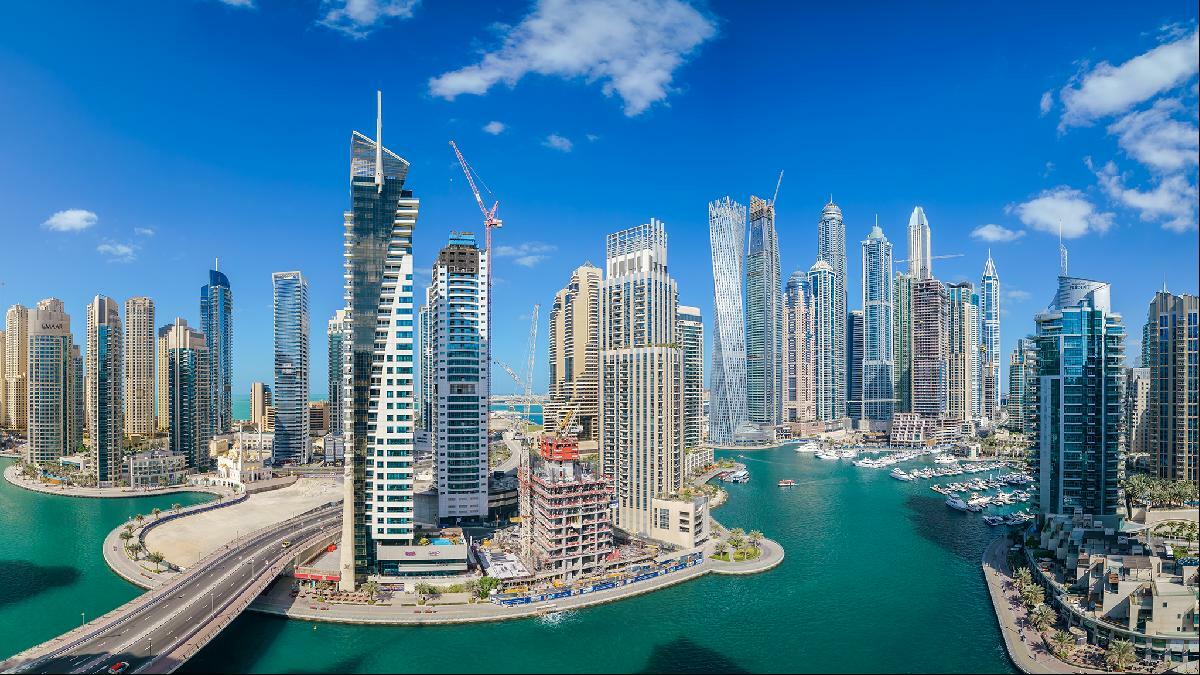The United Arab Emirates (UAE), and particularly Dubai, has become a popular destination for property investment due to its modern infrastructure, booming economy, and attractive real estate market. This comprehensive guide provides an in-depth look at the process of purchasing property in the UAE, covering the stages, legalities, and additional expenses involved, offering insights and expert tips to help you make informed decisions.
1. Overview of the UAE Property Market:
The UAE property market has seen a significant transformation in recent years, with the government introducing policies and regulations that make it easier for foreign investors to enter the market. Dubai, in particular, has emerged as a key destination for property investment, offering a variety of property options such as off-plan properties, ready-to-move-in units, and commercial spaces. Investors can choose from a range of luxury villas, apartments, and townhouses in prime locations like Downtown Dubai, Business Bay, Dubai Creek Harbour, and Dubai Marina.
2. Buying Off-Plan Property: Step-by-Step Guide
Off-plan properties are those that are still under construction or at the planning stage. The process for purchasing off-plan properties in Dubai includes the following steps:
a. Research and shortlist properties: Begin by researching different projects and developers, taking into account factors such as location, amenities, developer reputation, and potential return on investment.
b. Discuss terms with the seller: Once you have shortlisted a property, discuss the terms with the seller, such as cost, payment schedules, and other specifics. Make sure to negotiate the best possible deal.
c. Sign the contract: The contract, which is prepared by the agent according to Dubai Land Department (DLD) requirements, must include all agreed-upon terms and conditions. Make sure to review the contract carefully before signing.
d. Pay the deposit and agent's commission: Pay the deposit (usually 10% of the property's price) and the agent's commission fee (2% of the property's price) to secure your purchase.
e. Obtain a No Objection Certificate (NOC): Acquire an NOC from the developer, confirming the seller has no outstanding debts on the property. This is necessary for the property transfer to take place.
f. Transfer ownership at the DLD office: Provide necessary documentation, such as the original OQOOD registration certificate, receipts for all fees and duties, the NOC, and the original SPA between the seller and developer. Pay the full property price and complete the transaction.
3. Buying Ready-to-Move-In Property: Transaction Stages
Purchasing a completed property involves a similar process to buying off-plan properties. The main differences are related to registering the property in the government's under-construction property registry (OQOOD) and obtaining a new Sales and Purchase Agreement (SPA) from the developer. Here's a breakdown of the process:
a. Obtain a letter from the developer: As the property hasn't been handed over yet, you'll need to register with the government's OQOOD registry and pay a registration fee equal to 4% of the property's price plus a 1,000 AED duty.
b. Complete the transaction at the DLD office: Make an appointment at the DLD office and wait for your turn, which can take between 3-20 days. Provide all required documentation and pay the full property price.
c. Receive your new OQOOD certificate: After completing the transaction, you'll receive a new OQOOD certificate. Keep all payment receipts until the construction is complete and you receive the property ownership certificate.
d. Obtain a new SPA from the developer: Once you have the OQOOD certificate in your name, the developer must prepare a new SPA in the name of the current property owner.
4. Additional Expenses:
When buying property in the UAE, be prepared for the following additional expenses:
a. NOC fees: 500-5,000 AED, usually covered by the seller.
b. Agent commission: 2% of the property's price.
c. Property transfer fees: 4% of the property's price, plus a 580 AED certificate issuance fee.
d. Administrative fees: 4,200 AED payable to the Dubai Land Department (DLD).
e. Mortgage registration fees: 0.25% of the loan amount, if applicable.
In addition to these expenses, developers charge an annual maintenance fee, which the buyer must pay in advance when completing a sale transaction.
5. Legal Aspects of Property Ownership for Individuals and Companies:
The UAE's property ownership laws, regulated by Law No. 7 of 2006, grant property ownership rights to UAE citizens, Gulf Cooperation Council (GCC) member countries' citizens, and companies fully owned by them. Foreign buyers can only purchase property in designated Freehold zones or obtain a 99-year lease (Uzufruct) with the option to renew.
Individual foreign buyers can purchase property in Freehold zones, such as Downtown Dubai, Business Bay, Dubai Creek Harbour, and Dubai Marina, for personal use or rental income.
Foreign companies face additional restrictions. If a company's owner is not a UAE citizen, the company can only purchase property in Freehold zones. The transaction process may vary depending on the company's type and representation in other countries.
Conclusion:
The UAE property market, especially in Dubai, offers lucrative investment opportunities for both local and international investors. Understanding the complexities of the buying process, legal aspects, and additional expenses can help you make informed decisions and ensure a smooth transaction. By conducting thorough research, consulting with experts, and carefully considering your options, you can find the perfect property to suit your needs and secure a valuable investment in the UAE's thriving real estate market.
